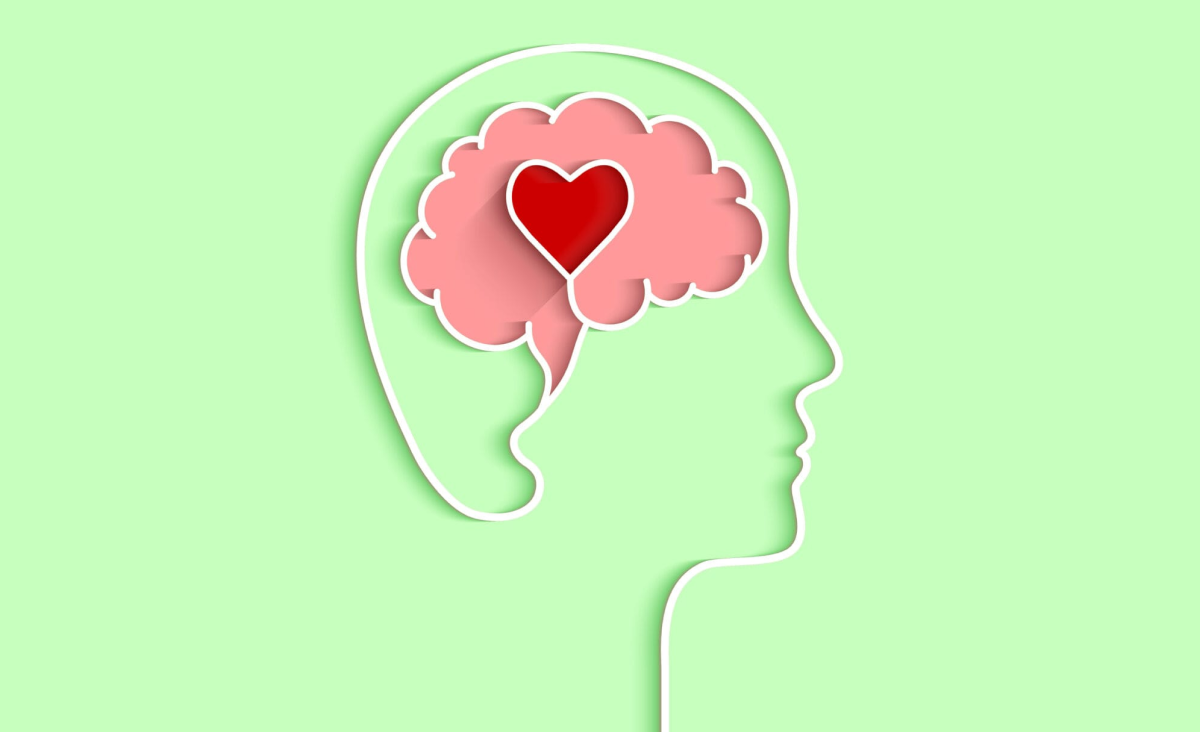CPT Codes For Mental Health Billing


Mental health services play a vital role in supporting individuals through therapy, counseling, and psychiatric care. Mental health care practitioners are being sought out now more than ever due to an increase in mental health issues.
Mental health billing can be complex, especially when it comes to understanding CPT codes.In order to ensure smooth billing processes, the AMA introduced CPT codes to distinguish the different medical treatment services. In this case, CPT codes for mental health professionals are different than those used by other medical practitioners and hospitals.
These codes are essential for ensuring that services are billed correctly and that healthcare providers receive accurate reimbursements. In this guide, we'll break down the key CPT codes used in mental health billing, helping you navigate the system with ease and clarity. Whether you're a provider or a billing professional, knowing these codes is crucial for efficient claims processing.
What are CPT Codes & How They Affect the Mental Health Billing Process
CPT codes or Current Procedural Terminology are a standardized set of codes used to describe various medical procedures. These codes are numeric/alphanumeric and grouped into three categories based on the nature of medical services – Category I, II, and III depending on the services rendered. CPT codes describe medical, surgical, and diagnostic services provided by professionals to patients. They come in handy when it comes to ensuring a smooth process for cashless medical insurance transactions that involve third-party medical insurance companies.
Understanding and correctly using mental health billing codes is crucial for several reasons:
- Accurate Reimbursement: The right mental health care CPT codes ensure that the professionals are paid correctly for their work. This is true in the case of patients with medical insurance.
- Ensures a regularized revenue cycle: When payments are made accurately, it ensures a regular revenue cycle, thus making it easier for healthcare facilities to evaluate their financials.
- Entering accurate mental health codes in the system helps professionals conduct a thorough medical analysis, thus ensuring fair treatment of patients.
To understand how learning CPT codes can be beneficial in the long run, it is essential to acquaint yourself with some of the commonly used codes in the mental healthcare industry.
Top CPT Codes for Mental Healthcare Billing
Here is a list of CPT codes that cover essential mental healthcare services. These codes are typically used for initial assessments and evaluations of new patients or established patients presenting with new problems. The following codes indicate diagnostic evaluation with or without medical services.
- 90791: Psychiatric diagnostic evaluation without medical services
- 90792: Psychiatric diagnostic evaluation with medical services
Psychotherapy
The following CPT codes are used for various psychotherapy sessions of different durations. Each time frame has a separate code. The appropriate code is selected based on the actual time spent by psychotherapists in face-to-face contact with their patients.
- 90832: Psychotherapy, 30 minutes
- 90834: Psychotherapy, 45 minutes
- 90837: Psychotherapy, 60 minutes
Interactive Complexity
- 90785: Interactive complexity add-on code
This is an add-on code used when there are complicating factors that make the psychiatric procedure more challenging. Examples include dealing with patients with significant communication barriers, children with behavioral issues, or when third parties (such as schools or family members) are involved.
Psychotherapy for crisis
- 90839: Psychotherapy for crisis, first 60 minutes
- 90840: Psychotherapy for crisis, each additional 30 minutes
This code is used for managing acute mental health crises, where urgent intervention is required. The session involves immediate evaluation, stabilizing the patient, and addressing the crisis, which may include mobilizing family or community resources. It covers the first 60 minutes of care.
Group Psychotherapy
- 90853: Group psychotherapy
This code applies to therapy delivered in a group setting, where multiple patients (typically 6-8) work with a therapist to explore shared challenges. Group psychotherapy is commonly used for support groups dealing with issues like addiction, depression, or trauma.
Family Psychotherapy
- 90846: Family psychotherapy without the patient present
- 90847: Family psychotherapy with the patient present
This code is used when family members attend therapy without the patient. The focus here is on addressing the dynamics and concerns that affect the patient's well-being. It helps family members understand how to support the patient’s mental health journey.
Medication Management
- 99213: Office or other outpatient visit, typically 15 minutes
- 99214: Office or other outpatient visit, typically 25 minutes
- 99215: Office or other outpatient visit, typically 40 minutes
This code is used for brief outpatient visits focused on medication management. It is commonly used for follow-up visits where the main goal is adjusting prescriptions or monitoring the side effects of medication.
Best Practices for Using Mental Health Billing Codes
- Ensure that the correct CPT codes are used for the corresponding service. This helps with the initial patient evaluation and diagnosis.
- Time-Based Coding: For time-based services like Psychotherapy, include the exact hours for face-to-face sessions.
- Avoid Duplication: It is essential to conduct a thorough check on what services are covered by a particular code to avoid duplication and impending confusion.
- Stay Updated: CPT codes can change annually. Stay informed about updates and revisions to ensure your coding remains accurate and compliant.
- Use Modifiers Appropriately: Modifiers can provide additional information about a service. Use them when necessary to clarify the nature of the service provided.
- Regular Audits: Conduct regular internal audits of your coding practices to identify and correct any errors or patterns of miscoding.
Common Challenges in Mental Health Billing
As is the case with all systems, there are a few challenges that all healthcare providers face when implementing CPT codes for mental healthcare services.
- Complexity of Services: Mental health services often involve complex, multifaceted treatments that can be challenging to code accurately.
- Time-Based Coding: Many mental health services are billed based on time, which requires precise documentation and adherence to specific time thresholds.
- Insurance Variations: Different insurance providers may have varying requirements for mental health billing codes, necessitating careful attention to each payer's guidelines.
- Evolving Regulations: The mental health field is subject to frequent regulatory changes, requiring ongoing education and adaptation in coding practices.
The Future of Mental Health Billing Codes
The current times have thrown emphasis on mental healthcare more than before. With an increasing number of people turning to seek help for mental health issues, it has become crucial for mental health care professionals and service providers to keep learning and updating their knowledge of CPT codes. Accurate CPT codes ensure a smooth interaction between payers and patients. Although small, these five-digit numeric codes can make or break a medical system. With evolving treatment methods, the CPT codes may keep changing. So, the key is to stay updated, evaluate thoroughly, and enter accurate codes for hassle-free billing processes.
With its advanced AI workforce, CombineHealth is transforming medical coding for mental health. AI Medical Coding solutions like Amy help analyze medical records, including doctor notes, test descriptions, medical history, etc., and automatically assign the appropriate ICD-10 and CPT codes based on the documented diagnoses and procedures. This reduces human error and increases coding accuracy. Like human coders, Amy also recognizes gaps in medical documentation, promptly querying the providers to give additional context required to determine the most appropriate ICD or CPT code.
Finally, Amy clearly highlights the reasoning and the thought process behind determining the medical codes. This significantly eases the process of auditing Amy’s outputs, helping with a reliable and trustworthy adoption of medical coding AI.
If you are interested in learning more and partnering with us, please get in touch with us
FAQs
Are CPT codes for mental healthcare different from APC codes?
Yes, Mental Health Billing codes refer to five-digit numeric codes representing the various mental healthcare services availed by Medicare patients. These codes facilitate a faster and more efficient billing process for mental healthcare providers. Ambulatory Payment Classification (APC) codes are used for Medicare patients who avail of outpatient services at various healthcare facilities.
What are the functions of CPT codes in the mental healthcare system?
Mental healthcare CPT codes help billing executives identify the different mental healthcare services rendered by hospitals and private practitioners alike. Using CPT codes helps mental healthcare professionals understand the services rendered to a patient. These codes ensure a seamless billing procedure for both the payers and patients.
Can CPT codes be used for Mental Health Telehealth Services?
Yes, Mental healthcare providers who render services via Telehealth use CPT codes for efficient diagnosis and billing purposes.
How does CombineHealth help with mental health CPT codes?
For mental healthcare providers who see huge volumes of patients, CombineHealth offers AI-powered solutions that help automate mental health CPT codes, thus ensuring fuss-free payments for medical insurance and Medicare beneficiaries.
Related Posts
Lorem ipsum dolor sit amet, consectetur adipiscing elit. Suspendisse varius enim in eros elementum tristique. Duis cursus, mi quis viverra ornare, eros dolor interdum nulla, ut commodo diam libero vitae erat. Aenean faucibus nibh et justo cursus id rutrum lorem imperdiet. Nunc ut sem vitae risus tristique posuere.
Subscribe to newsletter - The RCM Pulse
Trusted by 200+ experts. Subscribe for curated AI and RCM insights delivered to your inbox
Let’s work together and help you get paid
Book a call with our experts and we'll show you exactly how our AI works and what ROI you can expect in your revenue cycle.
Email: info@combinehealth.ai

















